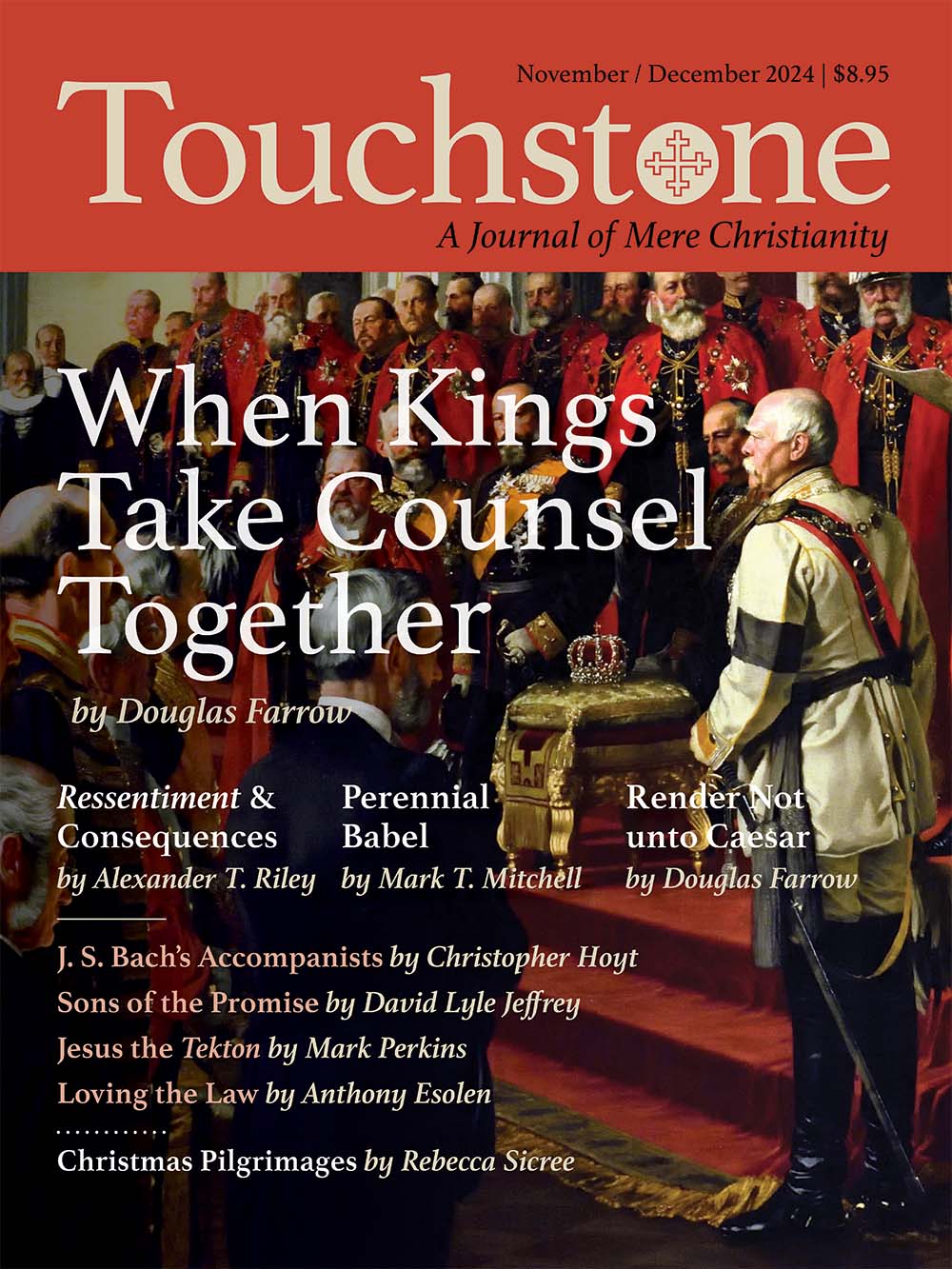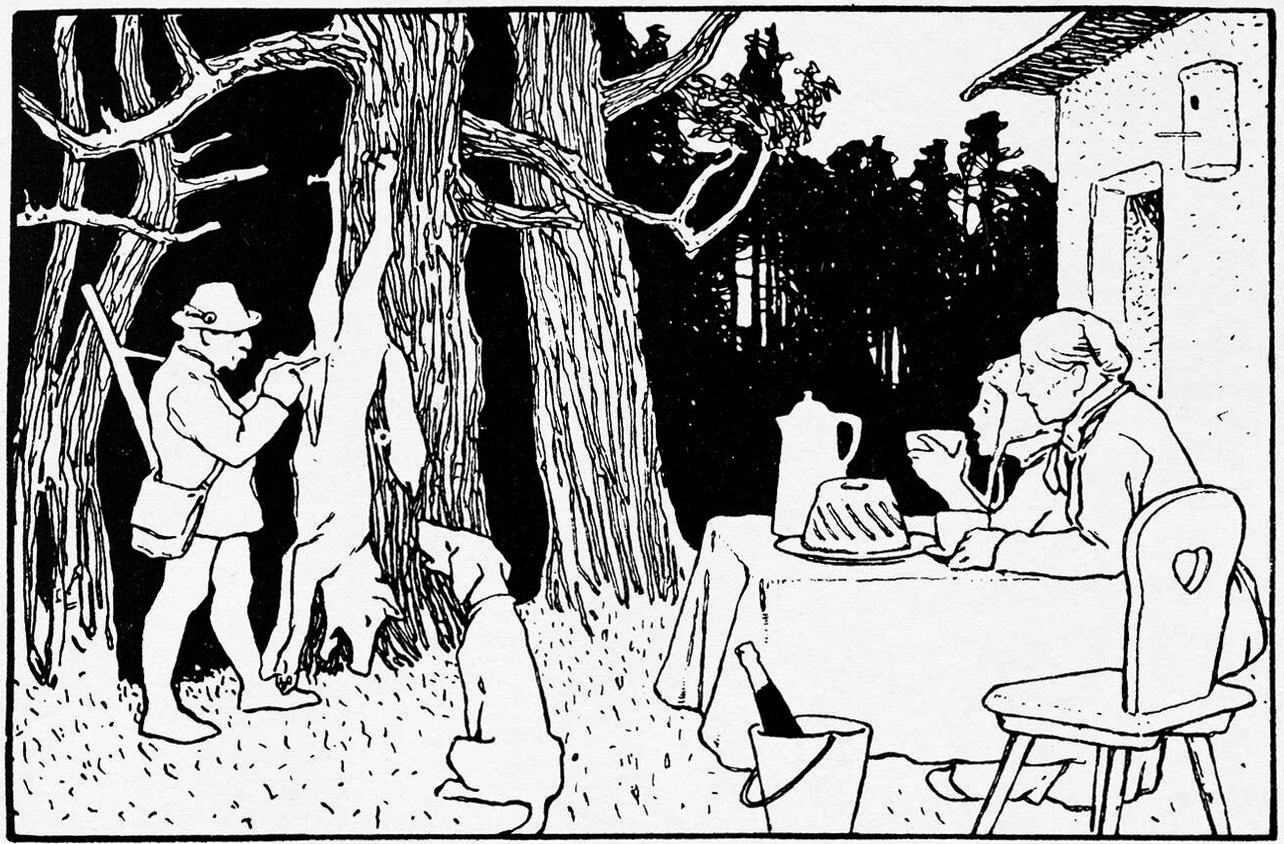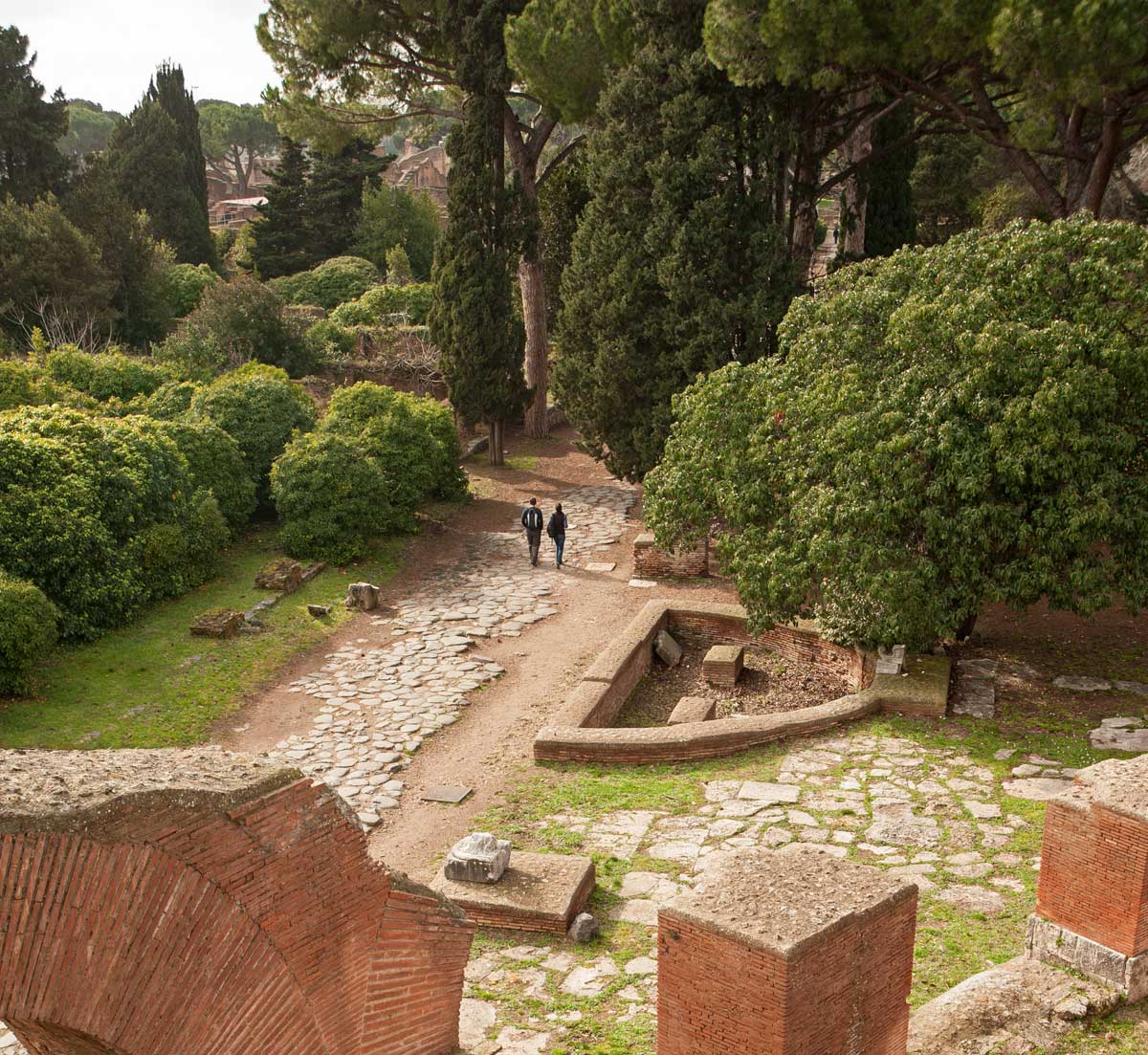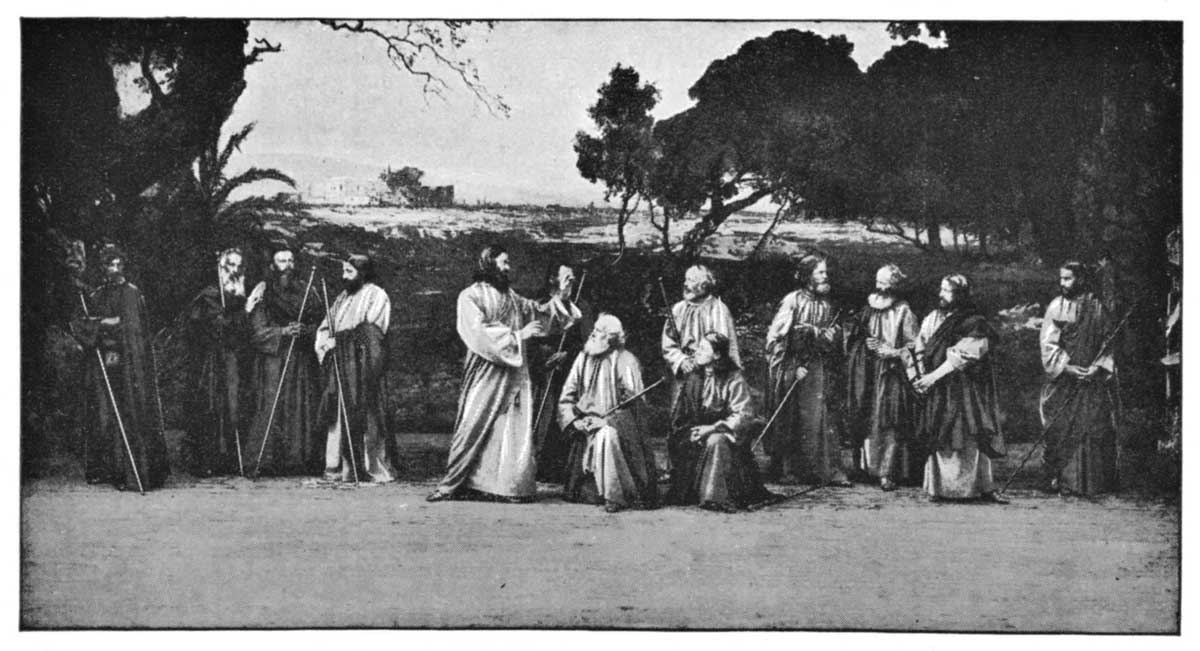Perennial Babel
Mark T. Mitchell on the Return of a Diabolical & Meaningless Project
Myths matter. They persist because they are carriers of truth. Of course, not all myths are simply made-up stories with a helpful moral. Some are based on actual events that, through their re-telling, have become condensed symbols that disclose features of the human condition. In this sense, some stories from the Bible may be said to have a sort of mythic status, especially when their basic contours serve to infuse later events or movements with meaning. For instance, the civil rights movement in America was framed by its leaders in terms of the Exodus story, in which God delivered the Hebrews from slavery in Egypt to freedom in the Promised Land.
The story of the Tower of Babel (Gen. 11:1–9) may be seen as having a similar mythic status, one that, perhaps, discloses the meaning of our current age better than any other. The story of a tower built through hubris is not exclusive to the Bible but is a universal tale, with extant versions from various cultures around the world. However, because the Bible is the anchor text of our civilization, we will focus on its version.
Where Heaven & Earth Meet
The basic elements of the story are well known. In the aftermath of the Great Flood, men “found a plain in the land of Shinar; and they dwelt there.” Then someone got an idea: “Let us build us a city and a tower, whose top may reach unto heaven; and let us make us a name, lest we be scattered abroad upon the face of the whole earth.” Given the context of the story—a recent devastating flood—it’s not surprising that an enterprising group would come up with such a scheme. Pervasive fear, rooted in the memory of a catastrophe, gave rise to an ambition that spawned collective action. A tower built to heaven would be a practical means by which to escape future floods. Some ancient accounts suggest that this tower would also furnish a means by which the men of Shinar could mount an attack on God, the keeper of the waters. The text also tells us that the builders sought to make a name for themselves.
To make sense of the biblical account of Babel, we must keep in view the opening chapters of Genesis. For Babel is a retelling of the story of creation and fall, but this time the context is not two individuals in a garden but a political community on a plain. In Genesis 1, we read, “In the beginning God created the heavens and the earth.” Heaven and earth frame the creation account and, indeed, the entirety of Scripture. Mountains are especially significant in this regard: The first man and woman are placed in a garden, which is also a mountain from which four rivers flow. In Ezekiel, Eden is called “the holy mountain of God.” God met Moses on Mount Sinai and gave him the law. Mount Zion is where God dwelt in his temple. Jesus went up on a mountain, where he was transfigured. Mountains are where heaven and earth meet.
The cosmic meeting of heaven and earth is replicated on the micro-level with the creation of man: he is the dust of the earth infused with the breath of God. Heaven and earth are unified in this final act of creation, whereby man is made in the image of God and animated by his divine life.
Right & Wrong Naming
The first man and the woman are given dominion over creation, to serve as stewards of the Creator. As a validation of that authority, the man is tasked with naming the animals. Naming is an outward manifestation of the fact that man is created in the imago Dei, for it indicates authority and requires creativity. God’s power and creativity are on display when he creates ex nihilo, and his authority is manifested when he names the first man “Adam.” Adam, in turn, names the animals, thereby revealing in language the diversity of creation. God says, “Let there be,” while man says, “This is called.” The man is imitating God in a specifically human way, and for this reason we might appropriately refer to human beings as homo-namer.
Naming, at its most basic, is making distinctions. It is recognizing and expressing, through language, the order of creation. Nor was this naming of reality a one-time event; it is the ongoing task of homo-namer. Human affairs are inseparable from naming, for language is, at its most rudimentary, the ongoing exercise of saying what is and what is not. Politics, then, is inseparable from naming. And a good polity necessarily depends on right naming.
Of course, right naming is nothing other than the right use of the logos, a Greek word that can be translated as “word,” “rational principle,” or “cause.” In the opening verse of John’s Gospel, undoubtedly one of the most profound sentences ever written, we learn that “in the beginning was the Word,” who is Christ himself. Thus, the Logos is at the heart of reality and is “in the beginning”—a phrase clearly intended to bring to mind the opening words of Genesis. Naming well is inseparable from participation in the Logos, which is rational order. Hence, misnaming is anti-logos, anti-rational. It is confusion of the created order. The word “Babel” itself means “confusion.” Thus, bad naming is synonymous with the spirit of Babel.
Let us return now to the plains of Shinar. The men’s express motive for building the tower was to “make a name for ourselves.” At one level, this clearly indicates an impulse of pride that seeks fame. But at a more literal level, we see an attempt to self-name. Self-naming requires, first, effacing the name given by God, which is a tacit denial of his divine authority. To make up a name for oneself is to assert one’s autonomy from God, which is simultaneously to claim autonomy from God’s created order, which is to claim autonomy from reality itself. This is, among other things, a pretty good definition of insanity.
Names can be understood as linguistic symbols, and here etymology discloses an important reality. Our word “symbolic” is derived from two Greek words meaning “throw” and “together.” “Symbolic” naming, then, is putting together two things that belong together. Conversely, and just as suggestively, “diabolic” is derived from Greek words meaning “throw” and “apart.” The diabolical is the pulling apart of two things that ought to be joined, but we might also conceive of it as putting together two things that ought not to be joined. Our society is awash in projects animated by both senses of “diabolical.”
Life-Giving & Death-Dealing
Mark T. Mitchell teaches political theory at Patrick Henry College in Virginia. He is the co-founder of Front Porch Republic.
subscription options
Order
Print/Online Subscription

Get six issues (one year) of Touchstone PLUS full online access including pdf downloads for only $39.95. That's only $3.34 per month!
Order
Online Only
Subscription

Get a one-year full-access subscription to the Touchstone online archives for only $19.95. That's only $1.66 per month!
bulk subscriptions
Order Touchstone subscriptions in bulk and save $10 per sub! Each subscription includes 6 issues of Touchstone plus full online access to touchstonemag.com—including archives, videos, and pdf downloads of recent issues for only $29.95 each! Great for churches or study groups.
Transactions will be processed on a secure server.
more on culture from the online archives
more from the online archives
calling all readers
Please Donate
"There are magazines worth reading but few worth saving . . . Touchstone is just such a magazine."
—Alice von Hildebrand
"Here we do not concede one square millimeter of territory to falsehood, folly, contemporary sentimentality, or fashion. We speak the truth, and let God be our judge. . . . Touchstone is the one committedly Christian conservative journal."
—Anthony Esolen, Touchstone senior editor














